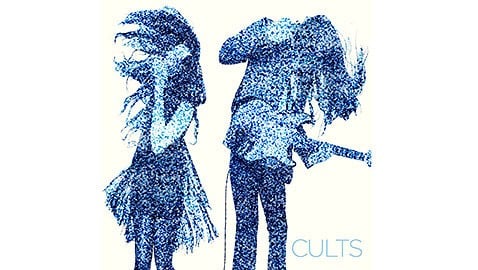The indie, dream-pop duo tweaks their sound on their sophomore album
Rating: 8/10 Release Date: Oct. 14, 2013On their self-titled debut album, the Cults set the bar high. The indie duo of vocalist Madeline Follin and multi-instrumentalist Brian Oblivion, whose hazy indie rock fuses elements of retro pop with modern digital effects, brought an irresistible youthfulness and energy on their first album, best exemplified by their singles “Abducted” and “Go Outside.” “Cults” was, more than anything, catchy, if eventually tiresome. While it failed to hold up the same after the nth listen, they had produced a sound that was undeniably imaginative and infectious. And faced with the unenviable task of living up to the standards set on their debut album, they made just the right amount of adjustment to their formula, nailing it on the head with their second album “Static.”
On a basic level, “Static” sounds like the “Cults” we’re used to: It’s got catchy hooks, high energy, Follin’s mesmerizing vocals and the reverb effect that carries their dreamy sound. At the same time, though, the band’s music has veered slightly away from pop to something a little groovier, grungier and, frankly, more organic — a product of the band’s reduced reliance on electronic instrumentation. This development is apparent in the single “I Can Hardly Make You Mine,” which runs thick with the bass and distorted guitar, and “Were Before,” which features a groovy bassline in its final minute. Oblivion said in an interview with SPIN that the focus for this latest album was on making it feel “like a live record,” and “Static” certainly has a heavier, more authentic sound than their previous album. 2011’s “Cults” featured a series of compelling and uncontained bursts of energy; “Static” channels the same energy with more focus and poise and also manages to explore more territory, as in the one-minute-long trippy escapade “TV Dream.”
“Static” is a record that is perhaps not as instantly gratifying as the band’s first but is assuredly more rewarding upon further listens. There’s more to take in instrumentation-wise, and it has better continuity as a record, especially with the final track “No Hope” serving as a reprise of the opening track “I Know.” Those who have never listened to the Cults before are less likely to find “love at first listen” with “Static” than with their first album, but on the whole, “Static” seems likelier to stand the test of time. There’s no obvious standout tune on the album, but there isn’t a single weak one either.








